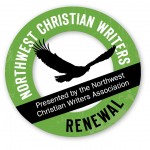A writing conference is a complex and multi-faceted two to five day event. To get the most for your money, spend some time preparing before your walk through the doors on registration day.
Study the brochure. If directed, go to the Website where more detailed information is given. Read carefully what is being offered, what you have to sign up for ahead of time, or on site.
Check for scholarships. Conferences can be pricey, but most offer a way for attenders to come on a discount or for free.
Contests? Many conferences hold contests. This is a way to get your book noticed or receive feedback on your manuscript from experienced writers.
Critiques? Are they offering an opportunity to have sit down with a professional author and have a ms critiqued. If so, take advantage of this time. Check to see if there is an extra fee for this. It might be worth it.
Editor/agent appointments? One huge reason to attend a writing conference is to sit down with an editor and/or agent and pitch an idea for a book ms. (Don’t neglect those magazine editors.) This is an invaluable opportunity to network. Become known by the people who make decisions about what books to publish, or not. They might say no, but give you guidance on how to make your book more saleable. They might tell you that your novel isn’t right for them, but suggest where to send it.
Appointments are usually limited, so make a wise choice. Study descriptions of those who will attend. Go to their Websites to find even more information about their literary agency or publishing house. Is this the right person for you? Don’t waste your appointment on someone who does only fiction and you’re writing a nonfiction book.
Should you bring a copy of your ms? Read carefully the advice given on the conference Website. Normally the answer is no. What you could bring is a
one sheeter, a one page description of your project that includes a short bio and picture of you. Some bring a book proposal in case they are asked. Most editors and agents will ask you to send a proposal or query letter to them via email after the conference. It never hurts to come prepared.
Book signings? If you have published a book, check for an opportunity to be part of book signing party. Authors are consumers, and this is a way to become known by all those other writers, editors, and agents who are present.
Bookstore? If there is a bookstore on site, ask if you can sell your published book. Usually you can sell it on consignment. The store takes a part of the sale price, you get the rest. Even if you don’t sell any copies, people will have seen your book on display.
Workshops. Read descriptions of each before you arrive and see which one you want to attend. Some have limits, others are wide open. Don’t limit yourself to your genre. Poetry might teach you something about use of language, rhythm of words, beauty of language. Even if you’re a beginner, it might be worth it to take a marketing class, start early to build a platform.
Are sessions taped? Usually you can’t go to everything you want to attend. Buy tapes. They are well worth the money.
Plan to network. If you are shy, they might be hard to imagine. Put yourself out and meet new people. You have something in common. A good starting question is, “What do you write?”
Exchange business cards. If you don’t already have business cards, now is the time buy some.
www.vistaprint.comoffers several choices for not much money.
Examples of writing conferences
 Feeling discouraged? Maybe these stories will give you the courage to keep going one more day.
Feeling discouraged? Maybe these stories will give you the courage to keep going one more day.